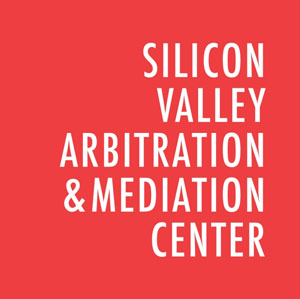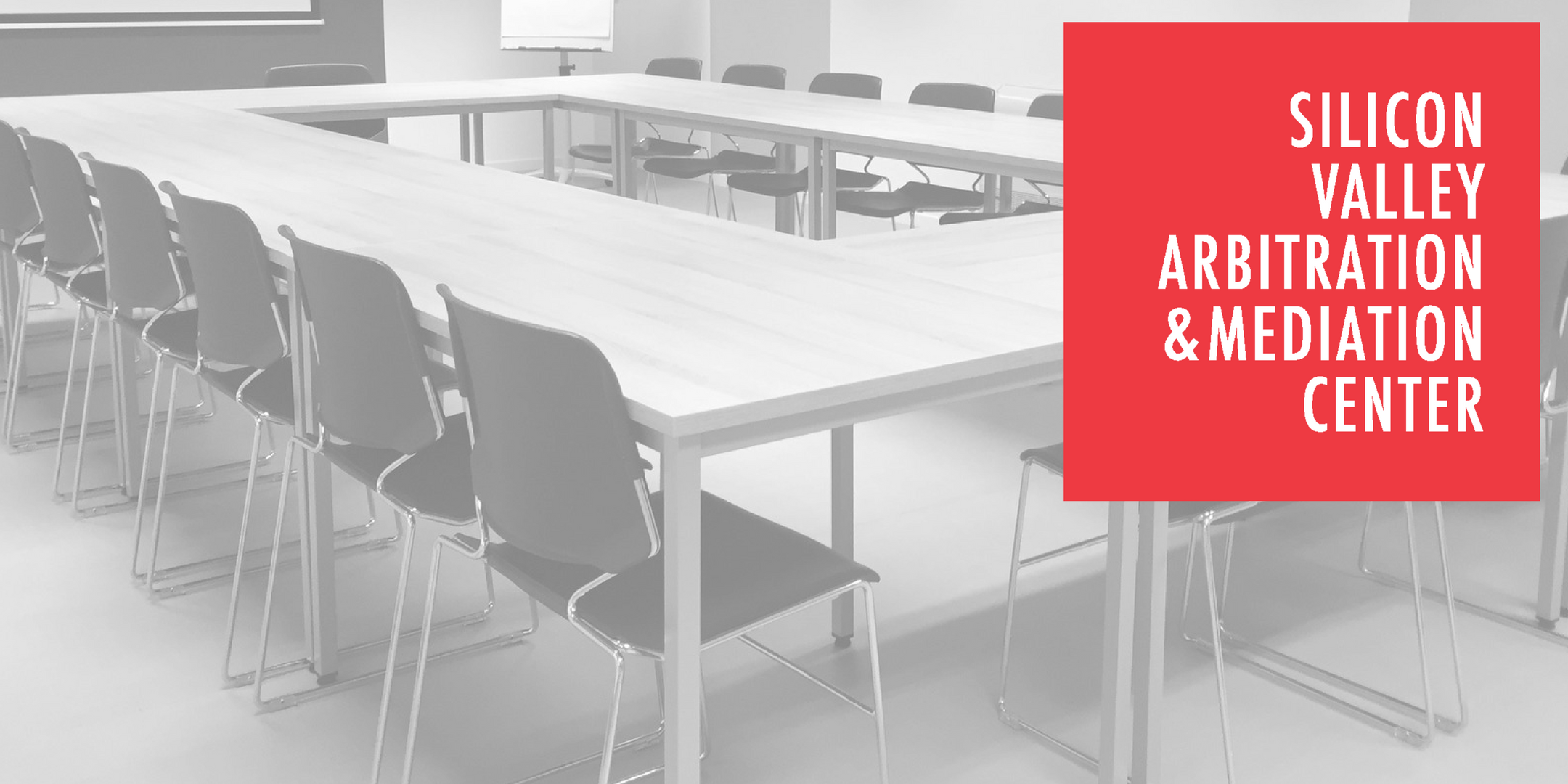On October 26, 2017, Wilson Sonsini Goodrich & Rosati, PC, hosted SVAMC’s first Law Firm Roundtable: A gathering of 13 senior lawyers from ten of Silicon Valley’s major firms, co-sponsored by the International Institute for Conflict Prevention & Resolution (“CPR”). Chris Compton moderated the program, joined by SVAMC’s Chairman Gary Benton, CEO Les Schiefelbein and Executive Committee member Vicki Veenker.
Niki Borofsky of CPR joined participants Mike Levin and Matt Reed of WSGR; Mark Beckett and Marc Suskin of Cooley; Jon Michaelson of Kilpatrick Stockton; Scott Nonaka of Sidley Austin; Wes Overson of MoFo; Darryl Woo from Vinson Elkins; Vern Granneman of Pillsbury; Geoff Miller of Fenwick; Judith Hasko of Latham; Lillian Stenfeldt of Sedgwick; and John (Mac) McArthur.
The topics up for discussion included when and why tech companies look to the ADR providers; how decisions to arbitrate or mediate litigation disputes are made; the types of cases most suited to arbitration, and best practices in selecting the terms of arbitration and the arbitration panel. 90 minutes of smart and enthusiastic dialog proved woefully insufficient to cover that waterfront.
Several points were made by the attendees, however, that seem worth noting and following up:
- International disputes, whether administered by, g., the ICDR, WIPO or the London or ICC Courts of Arbitration, frequently find themselves arbitrated rather than litigated in national courts. A primary motivator is the ability to enforce such awards in most nations, but having a neutral venue also plays a major role. One participant noted, nevertheless, that many tech companies remain unaware of these advantages when the “disputes clause” is being drafted in licenses, supply agreements, joint ventures, etc.
- The “seat” of international arbitration is of major importance—for the implications of local laws, the arbitral institution selected and procedural issues. Litigators and corporate lawyers need to understand these issues.
- Most of our participants expressed a preference for 3-arbitrator panels rather than submitting their disputes to a single decision maker. Reasoning: it is too risky to put a high-value case in the hands of a single arbitrator.
- Litigators typically find themselves in an ADR process due to decisions made by the corporate lawyers when they drafted the agreements at issue. Those lawyers may be inexperienced in dispute resolution or lack knowledge of the options available. Further, contracts are often drafted months or years before a dispute arises, with little context in which to make informed judgments.
- With some dissent, most of our participants felt that tech companies are increasingly turning to ADR for their disputes, whether commercial or IP in nature. The “word is getting out” about the cost and time savings of arbitration, though at times the parties pursue, and the arbitrators permit, a scale of discovery that approaches judicial litigation. And the confidential nature of arbitration can be a major advantage in cases involving trade secrets or sensitive employment or IP issues.
- One partner observed that arbitration could be far more valuable if the parties focused on crafting some details of the private litigation during contract negotiation. Specifying the terms of confidentiality, for example, would be useful, as would detailing the type or limits of agreed discovery; specifying the expertise the arbitrators must have; articulating case management steps or dates; and setting forth if and when assisted settlement discussions should be attempted.
This Roundtable featured large-firm partners with many years of experience in litigating their tech clients’ disputes, but with varying backgrounds in ADR. Safe to say that all of us learned something new, and ended the evening determined to continuing the discussion, whether with their partners, clients or future roundtables. We at SVAMC thank CPR, our hosts at WSGR (including Nancy Farestveit) and all those who shared their wisdom and a glass of wine at this first annual Law Firm Roundtable.
CTCC

